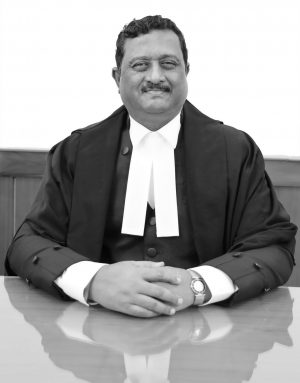
Meet Justice Prasanna Bhalachandra Varale and his Notable Judicial decisions
Justice Prasanna Bhalachandra Varale, born on June 23, 1962, in Nippani, Karnataka, is a sitting judge of the Supreme Court of India, having assumed office on January 25, 2024. He is renowned for his significant contributions to the Indian judiciary, particularly for his progressive approach and commitment to social justice. Justice Varale holds degrees in Arts and Law from Dr. Babasaheb Ambedkar Marathwada University and began his legal career in 1985. He practiced across civil, criminal, labour, and constitutional matters, and also served as a law lecturer and in various public law roles, including Assistant Government Pleader and Additional Public Prosecutor at the Aurangabad Bench of the Bombay High Court.
Justice Varale was elevated as an Additional Judge of the Bombay High Court in 2008, became a permanent judge in 2011, and was later appointed Chief Justice of the Karnataka High Court in October 2022. He is noted for being the only Chief Justice from the Scheduled Caste community among High Courts at the time of his Supreme Court elevation, reflecting his role in advancing representation and diversity in the judiciary.
Landmark Judgments
While specific Supreme Court judgments authored by Justice Varale since his recent elevation are still emerging, his tenure in the Bombay and Karnataka High Courts is marked by several notable decisions:
Social Justice and Reservation: Justice Varale has delivered judgments that reinforce the constitutional mandate for social justice, particularly regarding reservations and affirmative action. His jurisprudence emphasizes the importance of equitable representation and the upliftment of marginalized communities, in line with the vision of Dr. B.R. Ambedkar.
Constitutional and Administrative Law: He has presided over benches dealing with a wide spectrum of legal issues, including constitutional rights, administrative law, and protection of individual liberties. His judgments often reflect a careful balance between state interests and fundamental rights, ensuring that executive action remains within constitutional bounds.
Criminal Justice: Justice Varale has been recognized for upholding due process and fair trial rights, emphasizing the need for credible evidence in criminal convictions and safeguarding against arbitrary state action.
Education and Minority Rights: He has ruled on matters related to educational rights and minority protections, ensuring that constitutional guarantees are meaningfully enforced for all sections of society.
Justice Varale’s judicial philosophy is characterized by a commitment to the rule of law, protection of fundamental rights, and advancing the cause of social justice. His elevation to the Supreme Court is seen as a significant step towards greater inclusivity and diversity in the higher judiciary, and his judgments continue to shape Indian jurisprudence in critical areas of law.












comments